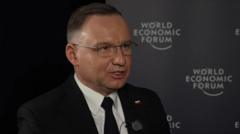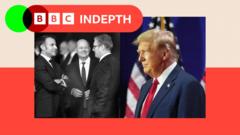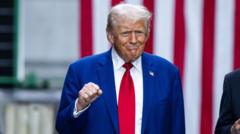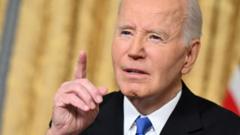Germany's political instability deepens as stagnant economic growth continues to challenge lawmakers.
Germany Faces Political Crisis Amid Economic Stagnation

Germany Faces Political Crisis Amid Economic Stagnation
Chancellor Olaf Scholz's government collapses as the country struggles with growth issues in a post-pandemic landscape.
In a striking turn of events, Germany's political landscape has been shaken to its core with the dissolution of Chancellor Olaf Scholz's government. The collapse comes on the heels of widespread dissatisfaction surrounding the country's anemic economic performance. Over the past five years, the German economy has suffered stagnation, drawing a stark contrast to the 12% growth experienced in the United States’ economy during the same period—including through the pandemic and its subsequent recovery.
As the world's third-largest economy, Germany's failure to demonstrate growth—especially after a brief rebound post-pandemic—has raised alarms among both voters and politicians. Many Germans had hoped for even modest improvements, but the reality has cast a long shadow. The economy narrowly evaded a recession this year, but the stagnation has spurred serious political consequences.
Across the Western world, including Germany, economic dissatisfaction has resulted in swings toward populism, empowering parties on both the far left and right. Where American discontent was predominantly fueled by sharp price increases, German voters feel the pain of losing their competitive edge in a global economy that is swiftly evolving.
As political leaders grapple to understand the underlying causes of the stagnation, voters are increasingly weary of a government that has failed to produce the economic growth they desperately seek. With growing uncertainty and differing opinions on how to tackle the situation, Germany faces a political crisis with potential ramifications that could further alter its economic landscape.






















